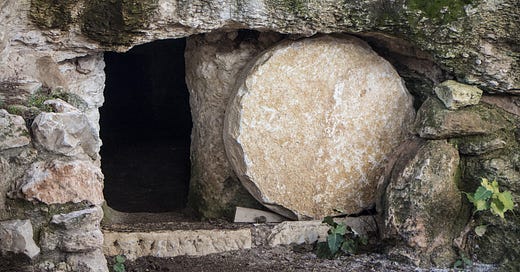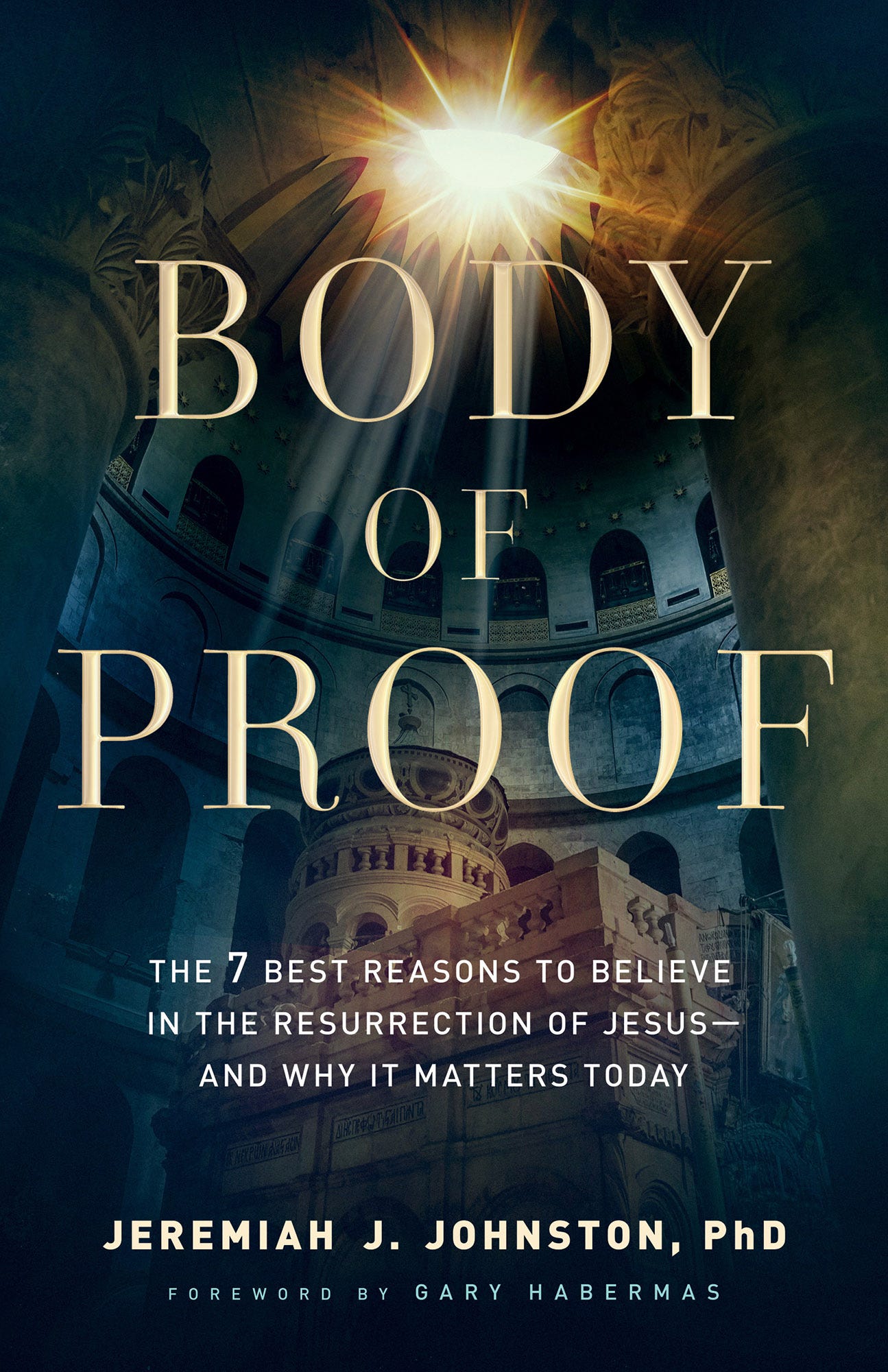Some theorists have contended that belief in the resurrection of Jesus was a result of deceit on the part of his followers. One approach is to suggest that stories of resurrection didn’t begin to circulate until many years after Jesus’ death. Most thinkers today, though, recognize that this hardly explains the sudden emergence of the church after Jesus’ death nor Paul’s sudden conversion, the latter, again, occurring only a year or two after Jesus’ death. Accordingly, some claim that some of Jesus’ disciples made up the resurrection story soon after his death. Initially, they say, the empty tomb played no part; followers of Jesus simply proclaimed the resurrection. And later, the fictional story of women visiting the tomb and finding it empty began to circulate.
The problem with these theories of deceit is that they fly in the face of Jesus’ ethical teaching. Is it probable that the followers of such a teacher would lie in such an extraordinary fashion? And if so, to what end? As Jews, they held to a coherent theistic faith (regarded as superior to pagan polytheism), which included hope for life after death. If in dying the way he did Jesus was apparently defeated and his message falsified, then why create the story of a resurrection? Why rehabilitate an apparent failed prophet and Messiah? Why claim against all popular expectations that the crucified Jesus was Israel’s long-awaited Messiah? The scenario is improbable.
In the last century, including in recent years, a number of other complicated theories of deceit have been proposed. These usually entail a conspiracy involving the Jewish high priest, the Roman governor, one or more of the disciples, Luke the physician, or others. According to these theories, Jesus’ death is faked; he is buried, then later helped from his tomb; he is revived, tricked out in impressive apparel; and then he appears to various gullible disciples, convincing them that he is indeed resurrected. No credible historian has embraced theories of this type.
One more way to deny the resurrection is to claim that Jesus was not in fact a person of history. This approach has been called mythicism. Mythicists claim that the historical evidence for Jesus is weak, well below the threshold we should expect of someone so notable if the New Testament Gospels really do speak of a person who lived and had contemporary followers.
Mythicism is regarded as eccentric, and this view is held by almost no historian or credible scholar. The evidence for the existence of a historical person known as Jesus, from the Galilean village of Nazareth, who was a public figure for a year or two and then after a confrontation with authorities in Jerusalem died on a Roman cross is substantial. Not only were four biographies written and circulated within one or two generations of his time, but we have the letters of Paul, a contemporary, who knew some of Jesus’ original followers (including Peter and John) and was acquainted with Jesus’ brother James.
Almost all scholars accept as authentic several of Paul’s letters, including 1 Corinthians and Galatians. In these letters Paul not only refers to James, the brother of Jesus, but claims to have met him, along with two or three of Jesus’ original followers—for example, Peter and John. No one doubts that Paul was a contemporary of these men. The idea that he could be talking about a brother of Jesus and the original followers of Jesus and yet this Jesus was not a real person strikes many as absurd.
Some mythicists go so far as to claim that there was no village called Nazareth in the early first century, that Christians invented it along with Jesus himself. No archaeologist agrees with such an extreme hypothesis. Indeed, they point to a fourth-century Jewish inscription found at Caesarea Maritima (a major city on Israel’s Mediterranean coast where the Roman governors resided), which lists courses (groups) of priests, including those of Nazareth. I know many archaeologists—Jewish, Christian, and of no religious orientation whatsoever—and not one doubts that Jesus was a real person. Indeed, the vast majority of these archaeologists view the Gospels as providing valuable historical data. Fictitious narratives about a mythical figure from a nonexistent village would not exhibit the reality that archaeologists and historians find in the New Testament Gospels.
Accordingly, mainstream scholars accept the historical authenticity of Jesus, and so should we.
— Jeremiah J. Johnston, PhD, Middlesex/Oxford, (www.christianthinkers.com) is a New Testament scholar and ministers internationally as president of Christian Thinkers Society. Jeremiah loves the local church, and also serves as pastor of apologetics and cultural engagement at Prestonwood Baptist Church and dean of spiritual development at Prestonwood Christian Academy.
---
From Body of Proof by Jeremiah J. Johnston, provided by Bethany House, a division of Baker Publishing Group. Copyright 2023. Used by permission.
“With arguments both traditional and new—appealing to recent evidence concerning Jesus's tomb and considerations of second-century challenges concerning the resurrection story—Johnston both persuades and encourages us. He demonstrates that Jesus's resurrection makes sense of life and is the centerpiece of our hope.”
— Craig S. Keener, F. M. and Ada Thompson Professor of Biblical Studies, Asbury Theological Seminary
“Here's a creative masterpiece of persuasive evidence for the pivotal event of human history—the Resurrection of Jesus. Dr. Johnston's unique and thoroughly researched approach is sure to solidify the faith of Christians and challenge the skepticism of doubters. Historical facts for the resurrection are what brought me from atheism to faith many years ago—and perhaps this lively and convicting work will transform your life as well. Read it with a highlighter handy!”
— Lee Strobel, New York Times bestselling author, and founding director of the Lee Strobel Center at Colorado Christian University
Find Body of Proof at Amazon or Baker Book House (where you’ll receive a 30% discount).
*Sponsored post
Title image by TC Perch from Pixabay




